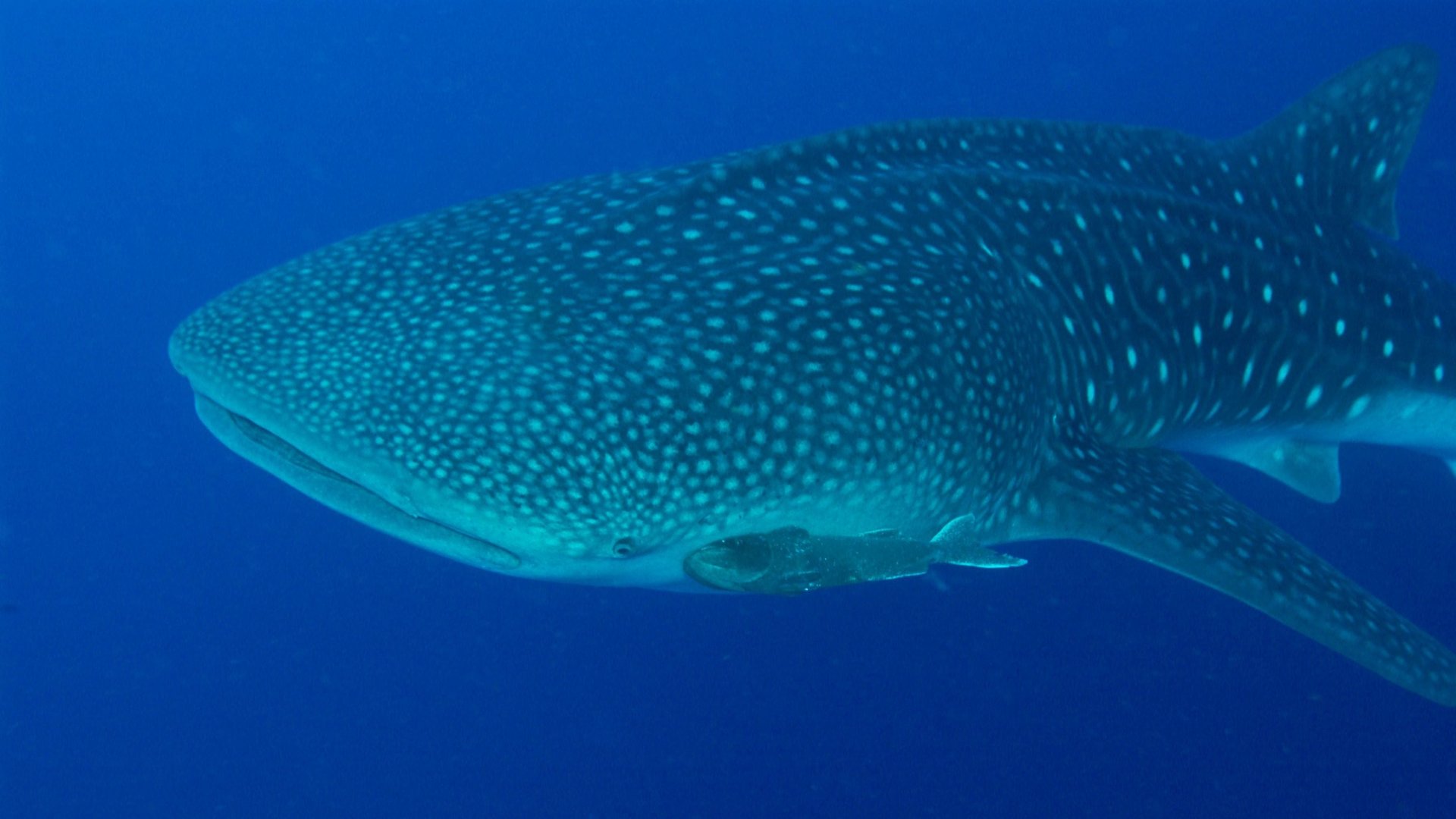The world’s largest shark may eat plants
The conventional wisdom has been that whale sharks, like other sharks, exclusively eat other sea creatures. The largest fish in the sea (about a school bus in length, and weighing more than 20 tons) are believed to subside by filtering massive amounts of tiny prey, like krill, fish eggs, and the occasional squid or prawn through their mouths and gills.


The conventional wisdom has been that whale sharks, like other sharks, exclusively eat other sea creatures. The largest fish in the sea (about a school bus in length, and weighing more than 20 tons) are believed to subside by filtering massive amounts of tiny prey, like krill, fish eggs, and the occasional squid or prawn through their mouths and gills.
But scientists in Japan recently found that whale sharks may not be entirely carnivorous. They appear to eat a mix of fish and sea plants, and more puzzlingly, periodically fast. Whether this is by choice, or because they can’t find enough food, could have implications for conservation. Already, whale sharks are classified as endangered by the International Union for the Conservation of Nature, as their numbers have decreased thanks to human activity, like offshore oil drilling, fishing (they’re sometimes accidentally caught and killed in commercial fishing nets, and hunted illegally for their meat), and tourism.
For their work, which was published Jan. 16 in the journal Ecological Monographs, researchers led by a team at the University of Tokyo took blood and tissue samples from three whale sharks living in the Okinawa Churaumi Aquarium in Okinawa, Japan, and eight whale sharks that had been caught in fishing nets off the coast of the island (they also freed the sharks).
Whale sharks living in the aquarium were fed a diet made up of two species of krill, with supplements of squid, fish, and prawns. Researchers sampled them six times over the course of 2012. As researchers expected, their tissue samples showed that they ate a meat diet. They also showed that the sharks fasted for two to three days at a time before resuming their diets of up to 90 pounds (45 kg) per day.
Whale sharks in the wild, which were sampled between 2015 and 2016, had blood and tissue chemistry indicating that roughly half of their diet came from plant sources, like algae or sea grass. Two out of the eight wild sharks appeared to be either starving or fasting at the time they were sampled, too.
It could be that eating plants and periodically forgoing food is a normal part of whale-shark biology. Scientists have limited knowledge on whale sharks. They live in the open oceans of equatorial waters, making them largely inaccessible to scientists. That said, Alex Wyatt, a research biologist in the Atmosphere and Ocean Research Institute at the University of Tokyo and lead author of the study, thinks that maybe whale sharks don’t eat while migrating; fasting sharks in the aquarium could have been refusing food based on when they’d normally be changing locations.
As far as the plant eating goes, maybe sharks aren’t all carnivorous. Scientists have already found stranded whale sharks with plant matter in their stomachs, he says, and in September 2018, researchers from the University of California-Irvine, published work showing that bonnethead sharks also appeared to intentionally eat sea grass.
However, it could also be a sign that whale sharks are facing distress. “If whale sharks are depending on omnivory as a response to prey reductions, in response for instance to fishing pressures or climate change, this has significant conservation implications,” Wyatt says, particularly if it’s found to be detrimental to the sharks compared to an all-carnivorous diet. They may need more conservation efforts, like marine sanctuaries, in addition to more legal protection from fishing (it’s already illegal in the US, China, and Indonesia).